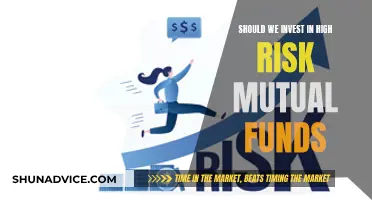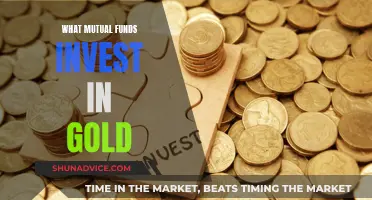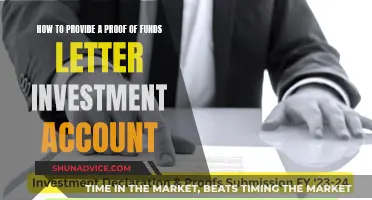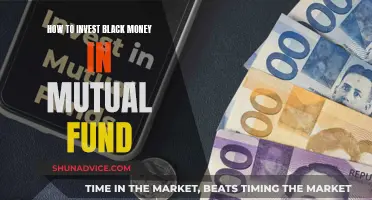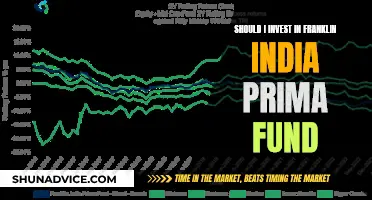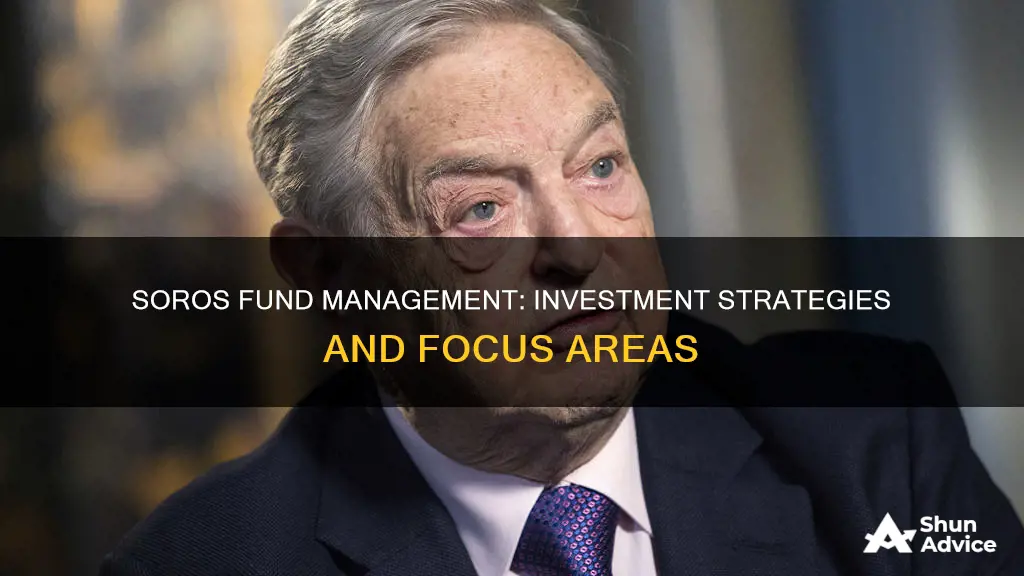
George Soros is a Hungarian-American businessman, investor, and philanthropist, who is widely considered one of the most successful investors of all time. He is also the chairman of Soros Fund Management LLC, a privately held American investment management firm and family office, which he founded in 1970.
Soros is known for his massive currency bets on a global economic scale and is famous for making a single-day profit of $1 billion by short-selling the British pound in 1992. He has also made large profits betting against the Thai baht during the Asian financial crisis in 1997, and against the Japanese yen in the 2010s.
Soros Fund Management has invested in public equity and fixed-income markets worldwide, as well as foreign exchange, currency, and commodity markets, and private equity and venture capital funds. The fund has also invested significantly in transportation, energy, retail, and financial industries.
| Characteristics | Values |
|---|---|
| Type of firm | Privately held American investment management firm |
| Structure | Family office |
| Founded | 1970 |
| Founder | George Soros |
| Co-founder | Jim Rogers |
| Headquarters | 250 West 55th Street, New York |
| AUM | $25 billion |
| Primary role | Adviser for the Quantum Group of Funds |
| Markets | Public equity, fixed income, foreign exchange, currency, commodity, private equity, venture capital |
| Industries | Transportation, energy, retail, financial |
| Notable investments | IndyMac Bank, Lehman Brothers, SolarCity, GAM, Vice Media, Manolete Partners, Liberty Broadband, Vici Properties, Caesars Entertainment, Amply Power |
What You'll Learn

Betting against the pound
George Soros is known as "The Man Who Broke the Bank of England" due to his short sale of $10 billion worth of pounds sterling, which made him a profit of $1 billion during the 1992 Black Wednesday UK currency crisis.
In 1990, Britain joined the European Exchange Rate Mechanism, or ERM, during a period of high inflation and low interest rates. As part of that agreement, Britain vowed to keep the pound within a certain band in relation to the German mark. In order to keep the two currencies within the range, Britain was forced to keep raising interest rates to attract buyers for its currency. Soros recognised that the pound was overvalued against the German mark and started to bet against the British currency.
During the summer of 1992, Soros began building a short position in the British pound. According to his colleagues, he carried a $1.5 billion short position for most of the summer. The British government defended the pound by raising interest rates. The government soon realised it would pay out massive amounts of money to defend the pound. German officials also made public statements that realignment within the ERM might be possible in mid-September.
In response to these comments by German officials, Soros decided to increase the size of his bet massively. He went from a $1.5 billion position to a massive $10 billion in the middle of September. He knew that the British government was having trouble keeping the currency propped up. Either the pound stayed relatively stable, in which case Soros and his investors would lose a little money, or the alternative was their bet would pay off. Thus, this was a low-risk, high-opportunity trade.
The British government was forced to abandon the ERM and begin allowing its currency to float freely on the evening of September 16, 1992. The next day, the pound fell 15% against the German mark and 25% against the US dollar. It is estimated that Soros made around $1 billion on the trade.
Investing Money: A Beginner's Guide to Funds and ETFs
You may want to see also

Betting against the baht
George Soros is known as "The Man Who Broke the Bank of England" for his short sale of $10 billion worth of pounds sterling, which made him a profit of $1 billion during the 1992 Black Wednesday UK currency crisis. However, this was not the only time Soros made a large profit by betting against a currency.
Soros also allegedly made a massive bet against the Thai baht during the Asian financial crisis in 1997. It is estimated that he bet $1 billion of a $12 billion portfolio that the currency would implode, which eventually happened when the Bank of Thailand ran out of ammunition to support its currency and fend off short sellers. The Malaysian Prime Minister, Mahathir Mohamad, later accused Soros of attacking Southeast Asian currencies, making a number of anti-Semitic comments against the hedge fund manager. Soros later clarified that he had sold those Asian currencies short early in 1997, months before the crisis. "By selling the Thai baht short in January 1997, the Quantum Fund managed by my investment company sent a market signal that the baht may be overvalued," said Soros.
Soros has been called "the man who broke the Bank of Thailand" due to this bet against the baht. This was not the only nickname Soros earned as a result of his successful currency bets. During the Asian financial crisis, Soros added to his growing list of nicknames, becoming known as "the man who broke the Bank of Thailand" when he bet almost $1 billion against the Thai currency, the baht.
Vanguard Prime Money Market Fund: A Smart Investment Move
You may want to see also

Investments in transportation
George Soros is a Hungarian-American businessman, investor, and philanthropist who is widely considered one of the most successful investors of all time. He is known for his massive currency bets on a global economic scale and has made a number of impressive investments and trades over the years. Soros has donated billions of dollars to various causes through his grantmaking network, the Open Society Foundations, and is a longtime champion of progressive causes.
Soros Fund Management, LLC, founded by Soros in 1970, is a privately held American investment management firm. The firm is headquartered in New York and, as of 2023, had $25 billion in assets under management (AUM). Soros Fund Management is the primary adviser for the Quantum Group of Funds, a family of funds investing in international markets. The company has significant investments in transportation, energy, retail, financial, and other industries.
While the specific details of Soros Fund Management's investments in transportation are not publicly available, we can assume that they include strategic bets on companies and technologies driving innovation in the transportation sector. This may include investments in electric vehicle manufacturers, autonomous driving technology, ride-sharing platforms, logistics and supply chain management, aviation, and other areas within the transportation industry.
Soros Fund Management's approach to transportation investments is likely influenced by Soros' investment strategy, which is based on his theory of reflexivity. Soros believes that market values are driven by the fallible ideas of participants rather than solely by economic fundamentals. He argues that investor bias and market moods can create self-reinforcing cycles of boom and bust, presenting opportunities for significant profits.
By applying this investment strategy to the transportation sector, Soros Fund Management can identify emerging trends and make strategic bets on companies disrupting the industry. For example, they may invest in companies developing electric vehicle technology, anticipating that the shift towards electrification will drive significant growth and create lucrative opportunities.
Additionally, Soros Fund Management's transportation investments may also involve infrastructure development, such as funding the expansion of roads, railways, airports, or seaports. These types of investments can provide stable, long-term returns and contribute to the firm's overall portfolio diversification.
Overall, Soros Fund Management's investments in transportation are likely a significant contributor to the firm's success, allowing them to capitalize on emerging trends and disruptive technologies within the dynamic and ever-evolving transportation industry.
Best Mutual Funds for Tax Savings: Where to Invest?
You may want to see also

Investments in energy
George Soros is a Hungarian-American businessman, investor, and philanthropist. He is the founder of Soros Fund Management LLC, a privately held American investment management firm. The firm has significant investments in energy, among other industries.
In 2011, Soros Fund Management partnered with Silver Lake Partners to create a fund called Silver Lake Kraftwerk, which focuses on investing in natural resource and energy companies. This partnership demonstrates Soros' interest and involvement in the energy sector.
In addition to his investments in energy through Soros Fund Management, George Soros has also made notable currency trades and investments in other sectors. He is known for his massive currency bets, including a famous trade against the British pound in 1992, earning him the title "The Man Who Broke the Bank of England." Soros has also invested in transportation, retail, finance, and other industries.
Soros is also known for his philanthropic activities and has donated billions of dollars to various causes through his grant-making network, the Open Society Foundations. He has supported education, health programs, human rights efforts, and the furtherance of democracy around the world.
Overall, George Soros' investments in energy are a significant part of his investment portfolio, and he has made notable contributions to the energy sector through his investment funds and philanthropic initiatives.
Pension Funds: Collective Investment Schemes Explained
You may want to see also

Investments in retail
George Soros is a hedge fund tycoon and one of the most successful investors of all time. He is the founder of Soros Fund Management LLC, which was one of the most profitable firms in the hedge fund industry, averaging a 20% annual rate of return over four decades.
Soros Fund Management has significant investments in a variety of industries, including transportation, energy, retail, financial, and others. While the specific details of their investments in retail are not publicly available, we can make some inferences based on their investment strategy and other known investments.
Soros Fund Management is known for its bold and often contrarian investment approach. They have a history of taking large, highly leveraged positions and riding out their bets for the long term. This strategy has led to massive profits, such as the famous short-selling of the British pound in 1992, known as "breaking the Bank of England," which netted Soros a $1 billion profit.
In the retail industry, Soros Fund Management has likely targeted companies with strong growth potential or those undervalued by the market. They may have invested in retail businesses that are disrupting traditional models, such as e-commerce platforms or omnichannel retailers. Additionally, they could have identified retail companies with strong brand value, innovative business models, or those leveraging technology to enhance their operations and customer experience.
Soros Fund Management's retail investments could also include companies that are well-positioned to benefit from macroeconomic trends, such as changing consumer behaviour, the rise of online shopping, or shifts in demographic spending patterns. They might have targeted retailers with a strong online presence, those offering convenient delivery options, or those leveraging data analytics to personalize their offerings.
Furthermore, Soros Fund Management has a history of investing in companies across different stages of development, from startups to established businesses. They may have identified retail startups with innovative products or services and provided them with the necessary capital to expand their operations and capture market share.
While the specific retail investments of Soros Fund Management are not publicly disclosed, their investment strategy and track record suggest that they would target retail companies with strong growth prospects, those leveraging new technologies, or those well-positioned to benefit from shifting consumer trends. Their investments in retail would be in line with their overall approach of identifying opportunities for significant returns, even if it involves taking calculated risks.
True Beacon Hedge Fund: Investment Strategies and Opportunities
You may want to see also
Frequently asked questions
The Soros Fund Management LLC, founded by George Soros, is a privately held American investment management firm. The fund primarily advises the Quantum Group of Funds, which makes international investments in public equity, fixed income, foreign exchange, currency, commodity markets, and private equity and venture capital funds. The fund also has significant investments in transportation, energy, retail, and financial industries.
George Soros is known for making massive currency bets on a global economic scale. Some of his most notable investments include:
- Betting against the British pound in 1991, making a profit of around $1 billion.
- Betting against the Thai baht during the Asian financial crisis in 1997.
- Shorting the Japanese yen while betting on Japanese stocks in the 2010s, making a profit of around $1 billion.
The cornerstone of George Soros' investment strategy is reflexivity. Soros believes that investors base their decisions on their perceptions of reality rather than the actual truth, and he attempts to profit from this discrepancy. He also believes that market values are driven by the fallible ideas of participants rather than just the economic fundamentals of a situation.


